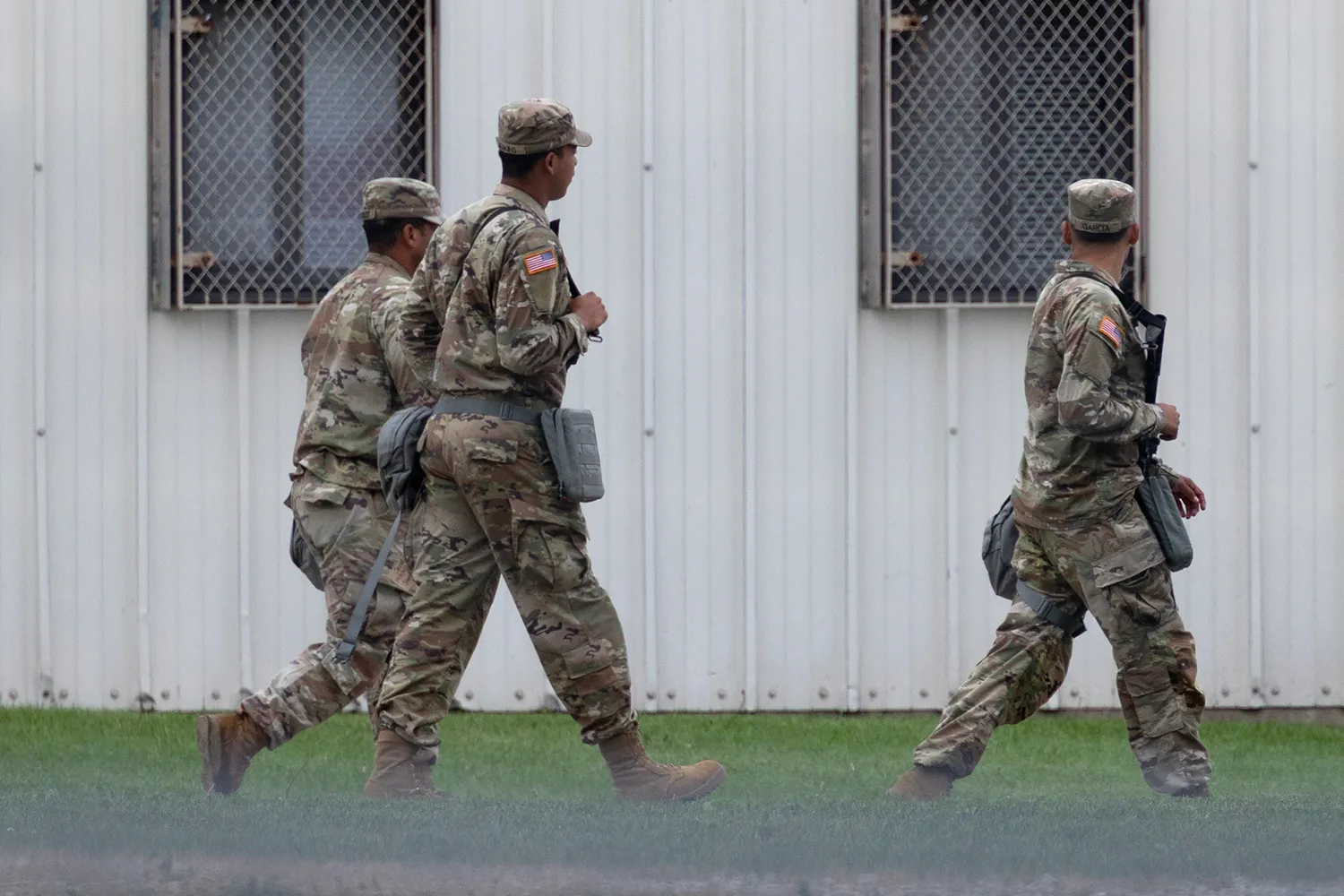A small group of Texas National Guard members has been sent home after failing to meet military physical fitness standards, following their deployment to Chicago to support President Donald Trump’s immigration enforcement efforts. The move comes amid heightened scrutiny of troop readiness and Secretary of Defense Pete Hegseth’s public push to enforce stricter military standards.
According to a Texas Military Department spokesperson, during the pre-mission validation process, seven service members were identified as not meeting mission requirements and were subsequently returned to their home stations. “The Texas National Guard echoes Secretary Hegseth’s message to the force: ‘Our standards will be high, uncompromising, and clear,’” the department said in a statement shared with Task & Purpose on Oct. 12.
The National Guard Bureau has consistently emphasized that all soldiers and airmen must meet service-specific height, weight, and physical fitness standards at all times. However, the department did not specify which exact standards the replaced troops failed to meet.
Hegseth, in response to media coverage of the removal, celebrated the decision on X, writing, “Standards are back at The @DeptofWar.” The Secretary of Defense had outlined a broader plan to reform military readiness just weeks earlier. On Sept. 30, speaking to senior military leaders in Quantico, Va., Hegseth detailed a 10-point plan to reshape standards across the force.
“It’s tiring to look out at combat formations—or really any formation—and see fat troops. Likewise, it’s completely unacceptable to see fat generals and admirals in the halls of the Pentagon,” Hegseth said. He added that women who do not meet the required physical criteria will not be permitted in certain military roles, noting, “If that means no women qualify for some combat jobs, so be it… that is not the intent, but it could be the result.”
During the same speech, Hegseth dismissed diversity, equity, and inclusion initiatives, declaring an end to “identity months, DEI offices, dudes in dresses, [and] climate change worship,” signaling a sharp departure from recent Pentagon priorities.
The announcement of stricter enforcement coincided with the National Guard’s planned deployment to Illinois in support of Trump’s immigration operations. Despite the president’s directive, a federal judge, April Perry, issued a temporary injunction on Oct. 9 to pause the deployment for at least two weeks. The decision was upheld by an appeals court on Oct. 11, though the order is set to expire on Oct. 23, with the possibility of extension.
As the Texas National Guard implements these measures, the incident underscores ongoing tensions within the military regarding readiness, fitness standards, and broader policy shifts under Hegseth’s leadership.


